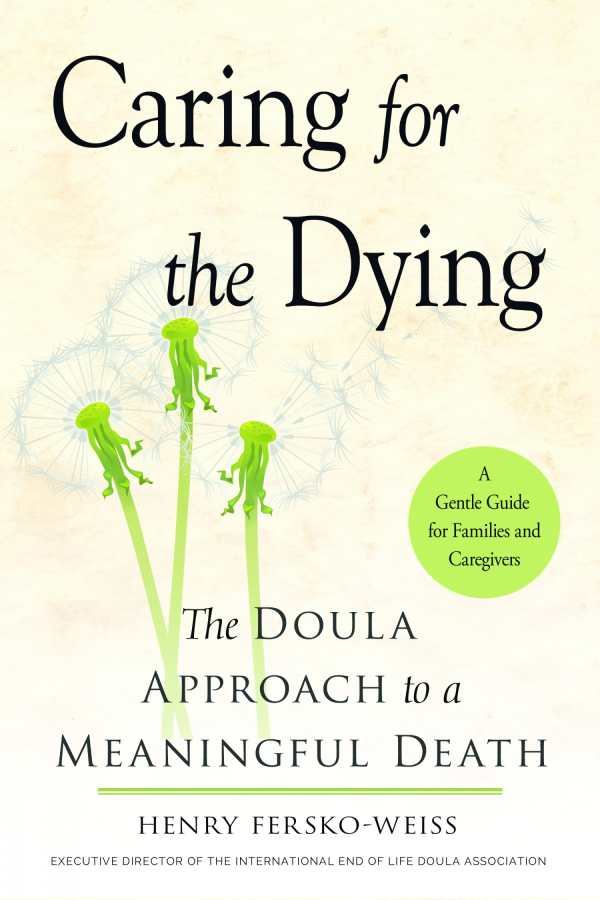Caring for the Dying
The Doula Approach to a Meaningful Death
This brave, reassuring book succeeds at eliminating the negativity surrounding death.
Henry Fersko-Weiss shares stories and strategies in his Caring for the Dying that show how doula programs remove pain and fear from the dying process and instead help the dying and their families to infuse death with ritual significance.
In 2003, social worker Fersko-Weiss created America’s first hospice-based end-of-life doula program in New York City. Just as doulas aid in childbirth, he believes they can assist the dying by fostering a nonclinical environment and encouraging people to face feelings of regret, engage in guided imagery, and leave a legacy project, like a quilt or scroll, behind. In the last days, doulas keep vigil alongside loved ones and lead rituals to inaugurate grieving.
Although Zen Buddhism inspires some of the author’s ideas, particularly around how mindfulness allows doulas to be active listeners, the book espouses no particular religious perspective and suggests secular prayers and rites. At the same time, its case studies, diverse and compassionately told, explore the place belief has in planning for life’s end: a family decides whether their grandfather should be buried in the Orthodox Jewish fashion, and through guided imagery a dying ex-priest discusses his doubts with his hometown minister.
The book holds broad appeal. It is not primarily a guide for prospective doulas—though it does give a sense of the unique challenges and rewards of the role, one still largely filled by hospice volunteers; it’s more of a companion for the dying and their families, and will also interest psychologists and anthropologists studying how we narrate the past and visualize the future.
Death can be unpredictable, yet Fersko-Weiss emphasizes being prepared. He recalls feeling guilty for not being by his father’s side as he took his last breaths. Now he teaches people to recognize physical signs that death is imminent. The dying, too, are involved in preparations: by crafting their legacy and expressing end-of-life wishes, they “regain a sense of purpose.”
This brave, reassuring book succeeds at eliminating the negativity surrounding death, reframing what seems like a passive, painful experience as an active journey that “captures the concentrated fragrance of a person’s life, its sweetest flavor.”
Reviewed by
Rebecca Foster
Disclosure: This article is not an endorsement, but a review. The publisher of this book provided free copies of the book to have their book reviewed by a professional reviewer. No fee was paid by the publisher for this review. Foreword Reviews only recommends books that we love. Foreword Magazine, Inc. is disclosing this in accordance with the Federal Trade Commission’s 16 CFR, Part 255.

